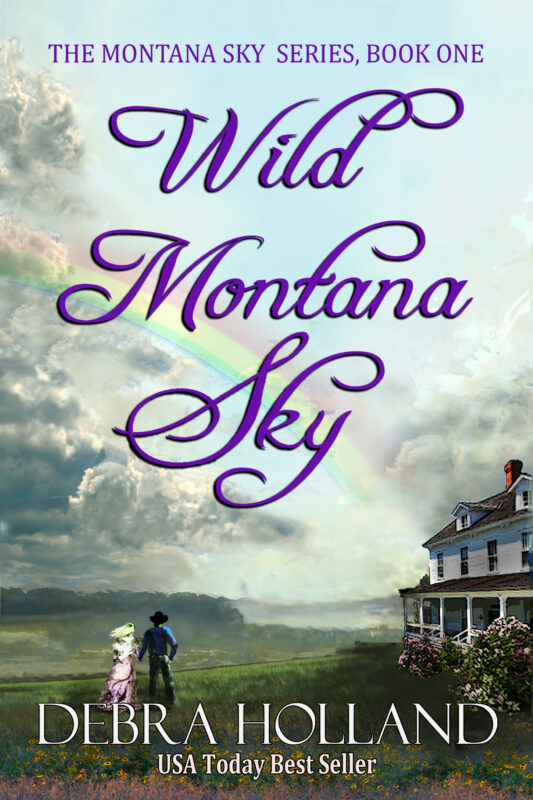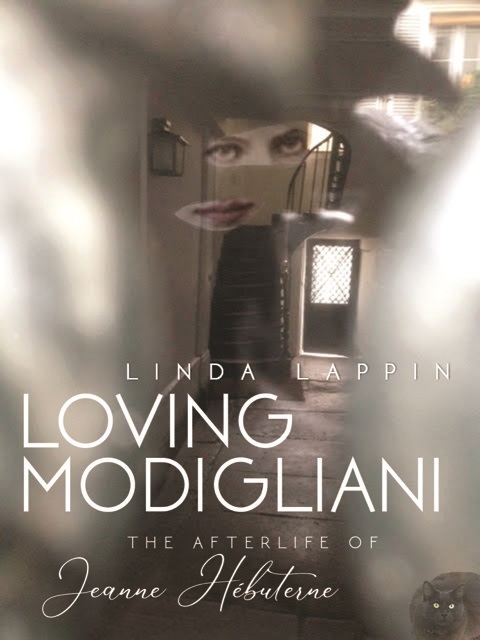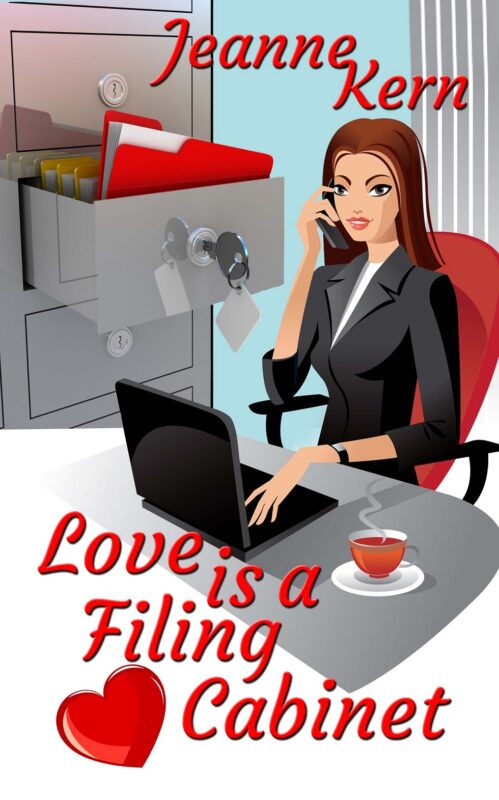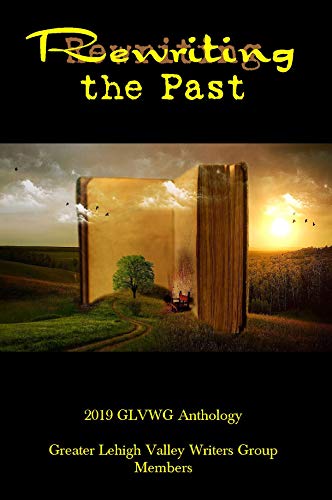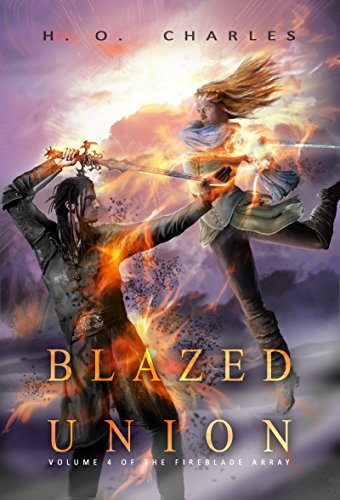Happy Hallothanksgivingmas by D. T. Krippene
November 13, 2021 by Bethlehem Writers Group in category From a Cabin in the Woods by Members of Bethlehem Writers Group tagged as Christmas, DT Krippene, Hallothanksgivingmas, Halloween, Thanksgiving, Traditions
In case you missed it, Halloween was the starting gun for blubber season. Nothing like ingesting bags of candy to get things rolling. If you were diet-conscious, bars of hyperactive-inducing sugar were available in “mini” sizes – an oxymoron if ever there was. Local stores stocked shelves in August, but those who waited until the first of October to purchase might have been disappointed. Space was needed to make room for Christmas decorations.
What happened to Thanksgiving? People already have their Christmas trees up before the turkey is bought. When did it become the norm to play holiday music before we’ve had a chance to scrape egg off the front door because we left the lights off on Halloween? I feel as if all three holidays have been smooshed together, with Thanksgiving wedged between the others as a wannabe.
Thanksgiving is the day we’re expected to watch a New York City parade with inane commentary and vintage cartoon characters nobody remembers. We see relatives that hadn’t graced our door for a year, then remember later why. It’s a sacred celebration where the arrangement of food on an individual plate becomes a science, and we gorge like our prehistoric forbearers when they felled a mammoth. Would you like leg meat or trunk?
Food offerings are as varied and quirky as our relatives. What is left on the plate when finished, like Aunt Mildred’s cranberry-scrapple gelatin mold, returns every year so everyone can hate it all over again. The meal is often mid-day, to allow for slumbering digestion to the spa-like sounds of slamming athletic helmets on TV, followed by an encore visit to the kitchen. Always lots of cranberry-scrapple gelatin left.
I put some of the blame on conscientious health fanatics who chagrin our tendency for culinary excess. We live in a time of Paleo diets and CrossFit training. Paleo is defined as what our prehistoric ancestors foraged before animal husbandry and agriculture, which to me, suggests anything that moved was fair game. CrossFit is defined as a conditioning program that employs “constantly varied functional movements executed at high intensity across broad modal and time domains.” I’ve always thought of the annual gorge as a high-intensity workout, but since it doesn’t occur across broad time and modal domains, I’m guessing it doesn’t count.
Maybe what we need is a different kind of Thanksgiving event that appeals to people like me whose exercise regimen consists of rolling out of bed. Let’s call it the Blubber Trot. Participants hop about with flabs of steel barely contained by Kevlar reinforced spandex. The first hundred finishers get to be first in line at the communal Horn-of-Plenty table. Those who don’t finish have to watch Hunger Games without popcorn. Paying spectators will be allowed to wander the leftover carnage and ask, “Are you going to eat that?”
As always, I’ll be flexing my Thanksgiving consumption with extreme prejudice. Once I’m done filling my gastrointestinal cistern with enough calories to heat a small city, I’ll need a solid concrete cap on that toxic well. I’m going for the pumpkin cheesecake.
Hats off to the intrepid writers immersed in NaNoWriMo. I hope your hard-working efforts don’t result in a take-out Thanksgiving meal or relegated to turkey sandwiches with a side order of cranberry sauce that retains the shape of the can it came in.
Happy Hallothanksgivingmas to one and all.
Anthologies with D. T. Krippene’s Stories

A native of Wisconsin and Connecticut, DT Krippene deserted aspirations of being a biologist to live the corporate dream and raise a family. After six homes, a ten-year stint in Asia, and an imagination that never slept, his annoying muse refuses to be hobbled as a mere dream. Dan writes dystopia, paranormal, and science fiction. His current project is about a young man struggling to understand why he was born in a time when humans are unable to procreate and knocking on extinction’s door.
You can find DT on his website and his social media links.
Facebook
Twitter
Pinterest
Other books from Bethlehem Writers Group
Choosing Words For Your Manuscript is Similar to Eating A Healthy Diet
November 12, 2021 by Denise M. Colby in category The Writing Journey by Denise Colby tagged as writing craft, writing lifeI recently came up with the analogy that choosing the right words for your manuscript is similar to choosing to eat a healthy diet. As I’ve run into a plethora of health issues where I have needed to again cut out foods that might be giving me issues, the correlation with editing my manuscript to take out issues popped into my head.
I’ve actually found flushing out these examples has helped me see both my food diet and my manuscript in a different light. So I thought I would share.

Choosing The Right Foods and Words
We trim out foods that give us issues; We trim off words that give us issues
Choosing the right foods takes practice, and sometimes we tend to slip a favorite in; choosing the right words take practice, but sometimes favorite words slip in.
Even though a particular food is a favorite, eating it doesn’t always have a good after effect; even though we like a particular word, it may not be the best word for the story.
Cheating on our Diet and with Our Writing
When we feel better, we want to cheat and eat a food that can cause issues; After spending time a ton of time flushing out our opening, our middle doesn’t get as much attention.
Sometimes having just one taste because it sounded like a great idea, really isn’t a great idea; the ideas for our MS sometimes don’t work on paper as well as in our heads.
We may take supplements or medicine to offset the affect of foods, but we have to put in the effort to eat the right foods to truly make change. We take classes and workshops or ask for feedback from others, but we have to apply what we learn to our writing to truly make change.
Be consistent, meal after meal, it gets easier to eat healthy; continuously work on our MS, day after day, it gets easier to choose the right words
Say no when we reach for foods that can hurt us; we have to say no to those distractions that can take us away from our writing
Accountability
We have to track our progress to hold us accountable with what we eat and identify when something affects us; we have to track our progress to hold us accountable in our writing, and keep track of the words that give us issues.
By tracking foods that affect us, we learn what to avoid; by tracking the unnecessary words we constantly use, we learn how to spot them better, and choose more wisely.
Pay attention when a food causes inflammation and later, decide against eating it; Track word count in our manuscript and choose the least amount of words to express what we want to say without it being too wordy.
Read labels to find the hidden ingredients that are a part of our list of no-no’s; Pay attention to the weasel words that sneak in to our manuscript and work on removing them overall.
Simplify our menu’s to keep from adding in foods that can cause issues; Cut back the plot points that take us on a side journey and don’t keep the story on track.
Choosing the right words make a great story
We eliminate foods from our diet because it will help us have better overall health; We eliminate words from our MS so that it can be a better story.
Denise M. Colby loves to write words that encourage, enrich, & engage. Every year, she chooses a word to focus on. This year her word is Wisdom. If you’d like to see more of Denise’s posts on this blog, you can check out her archives.
The Lost Girl in Paris and a Frenchwoman of a certain age you won’t forget by Jina Bacarr
November 11, 2021 by Jina Bacarr in category Jina’s Book Chat, Writing When I was studying the art of kimono and Japanese dance, I remember asking my sensei, teacher, how long a geisha could work at her profession of song and dance.
When I was studying the art of kimono and Japanese dance, I remember asking my sensei, teacher, how long a geisha could work at her profession of song and dance.
‘For as long as she wishes,’ she said. ‘I know a geisha in her nineties.’
‘There’s no work discrimination because of her age?’
‘None.’
‘Why?’
‘Because a geisha is ageless.’
Yes… ageless. I thought of that often when I was writing THE LOST GIRL IN PARIS. My heroine is a famed parfumier who is eighty when we open in New York City in 2003. It’s a world when cellphones weren’t the norm, texting was in its infancy, the Concorde made flights from New York to Paris… and memories of the Holocaust were still vivid in the minds of many survivors.
Like Madame de Cadieux.
A woman who survived both Auschwitz and Dachau, but never spoke about it until she meets a young reporter named Emma Keane who touches a nerve in her that now is the time to speak about those times. Her memories are as vivid to this eighty-year-old as if she were the seventeen-year-old girl who ran away to Paris to become a parfumier after losing her mother to the Nazi war machine.
I wrote THE LOST GIRL IN PARIS to pay tribute to the strong women who survived the Holocaust and willingly shared their stories with us. The horror of Nazi brutality, the loss of family, their dignity… but also about their strength just to ‘survive another day’. And the strong bonds with their sisters-in-arms they formed with fellow prisoners. How they learned to trust each other and stood up against the enemy to save each other.
Like the geisha, these women are ageless.
We must never forget.
——————-
Here is a short excerpt from THE LOST GIRL IN PARIS:

—————-

Love Forties Fiction?
A girl from a controversial upbringing becomes a famous perfumer during the war when she comes to Paris in 1940 to escape the Gestapo. Then how she uses perfume to do her part to win the war…
THE LOST GIRL IN PARIS is up for pre-order on Amazon!
Release date: November 30, 2021US https://www.amazon.com/dp/B09B1QDRVW/
UK https://www.amazon.co.uk/dp/B09B1QDRVW/CA https://www.amazon.ca/dp/B09B1QDRVW/
Australia https://www.amazon.com.au/dp/B09B1QDRVW/——————
Over 500 ratings on Amazon UK!The Resistance Girl

Juliana discovers her grandmamma was a famous French film star in Occupied Paris & her shocking secret…
US https://amzn.to/2FoKKeS
Meet the Cast from The Last Goodnight
November 8, 2021 by marianne h donley in category Apples & Oranges by Marianne H. Donley, Guest Posts
THE LAST GOODNIGHT is Kade Logan’s story, the first book in my new Blood Ties series. The story, set on Kade’s Diamond Bar ranch in Colorado, revolves around the unsolved murder eight years ago of his estranged wife. Now Heather’s car has been hauled out of a nearby lake and Kade is determined to track down the man who killed her.
To handle the job, Kade hires Eleanor Bowman, a private investigator who works for Nighthawk Security in Denver. Unfortunately, their efforts to solve the murder lead them into far greater peril than either of them are prepared to handle.
It’s my pleasure to introduce you to the characters in the story.
The Hero
Kade Logan, our hero, is a throwback to another place and time. He is a real-life cowboy who owns and runs a nineteen-thousand acre cattle ranch a three-hour drive northwest of Denver.
From the day he was born, Kade was meant to be a rancher. Raising cattle, spending most of his time out of doors, it’s everything he loves—unlike his two brothers, Gage and Edge, who want nothing to do with the ranching way of life.
At six-foot-two, with sun-streaked mink brown hair and a wide-shouldered, vee-shaped body, hard-muscled from his work on the ranch, Kade has no trouble attracting women.
Unfortunately, after years of his late wife’s infidelities, there is no way he is getting trapped by a beautiful woman again. Learning to trust is Kade’s biggest issue, not one easily resolved. That and the guilt and rage he feels for not bringing Heather’s killer to justice.
The Heroine
Enter our heroine, Eleanor Bowman. Ellie stands five feet-four-inches tall, with thick dark auburn hair and a spectacularly sexy figure.
Ellie, a private investigator, specializes in going undercover, being able to blend in with different types of people and their surroundings. She’s been hired for everything from catching a cheating husband to finding employees who have been stealing for years.
Though she prefers not to carry a weapon, Ellie owns a Glock 9, semi-automatic pistol and is a very good shot.
Raised on a small ranch in Wyoming, which the family lost when the bank foreclosed, Ellie hasn’t had it easy, but even after a failed marriage, she’s managed to do a good job of taking care of herself. With her background in ranching, Ellie is the perfect person to go undercover on Kade’s ranch.
Of course, being distrustful of women, Kade is completely against the idea. Especially when he feels an instant attraction to Ellie. Though he’d like to take her to bed, having her snooping around the ranch is a whole different matter. Forced to make a decision and determined to find Heather’s killer, Kade finally agrees to hire her.
It doesn’t take long for him to admit he is damned glad he did.
The Town
The tiny town of Coffee Springs not far from the ranch is a character in the novel. There is Rocky Mountain Supply, a big metal building that’s the only mercantile for miles around. Murray’s Grocery is just down from the Coffee Springs Bed and Breakfast, which is close to the post office. Across the street, you’ll find Fred’s Gunshop and Dentistry, and just down the block, the hub of town, the Coffee Springs Café.
The place wouldn’t be a Colorado cow town without the Elkhorn Bar and Grill and its Friday night dances, with music by the local country western band.
Some of the locals include the town gossip, Frances Tilman, the stout, gray-haired manager of the mercantile; handsome, dark-haired, blue-eyed Jonas Murray, the local ladies’ man; and Sheriff Glen Carver, an attractive blond man who, like the good-looking bartender at the Elkhorn, may or may not have been involved with Kade’s late wife. Speculation is that one of her lovers killed her.
It’s Ellie’s job to find out which one. The trouble is, to do it, she needs to leash her unwanted attraction to Kade and keep both of them safe as problems erupt on the ranch and the danger escalates from an investigation to matters of life and death.
I hope you’ll watch for THE LAST GOODNIGHT and that you enjoy it.
Till next time, all best wishes and happy reading, Kat.
You can read a review of The Last Goodnight, here on A Slice of Orange. And you can read an excerpt here.
Some of Kat Martin’s Books
Dianna Sinovic, Featured Author
November 7, 2021 by Dianna Sinovic in category Featured Author of the Month tagged as Dianna Sinovic, Featured Author of the Month, Quill and Moss, Short Stories
Author of the Month: Dianna Sinovic

Dianna is a contributing author in the last two anthologies from The Bethlehem Writers Group, Fur, Feathers, and Scales, Sweet, Funny and Strange Animal Tales and Untethered, Sweet, Funny & Strange Tales of the Paranormal. She has also contributed stories for the Bethlehem Writers Roundtable ezine, including “In the Delivery.”
Born and raised in the Midwest, Dianna has also lived in three other quadrants of the U.S. She writes short stories and poetry, and is working on a full-length novel about a young woman in search of her long-lost brother.
She is a member of Sisters in Crime, Horror Writers Association, The American Medical Writers Association, and The Bethlehem Writers Group, LLC.
Dianna also has a regular column here on A Slice of Orange, titled Quill and Moss, in which she frequently includes short fiction.
Below, you can also listen to Dianna read her short story, “Cold Front” from the GLVWG Writes Stuff anthology.
Other books by Dianna Sinovic
Affiliate Links
A Slice of Orange is an affiliate with some of the booksellers listed on this website, including Barnes & Nobel, Books A Million, iBooks, Kobo, and Smashwords. This means A Slice of Orange may earn a small advertising fee from sales made through the links used on this website. There are reminders of these affiliate links on the pages for individual books.
Search A Slice of Orange
Find a Column
Archives
Featured Books
LOVING MODILIANI
A ghost story, love story, and a search for a missing masterpiece.
More info →BLAZED UNION
Fate has other plans for those with fire and fury in their hearts.
More info →Newsletter
Contributing Authors
Search A Slice of Orange
Find a Column
Archives
Authors in the Bookstore
- A. E. Decker
- A. J. Scudiere
- A.J. Sidransky
- Abby Collette
- Alanna Lucus
- Albert Marrin
- Alice Duncan
- Alina K. Field
- Alison Green Myers
- Andi Lawrencovna
- Andrew C Raiford
- Angela Pryce
- Aviva Vaughn
- Barbara Ankrum
- Bethlehem Writers Group, LLC
- Carol L. Wright
- Celeste Barclay
- Christina Alexandra
- Christopher D. Ochs
- Claire Davon
- Claire Naden
- Courtnee Turner Hoyle
- Courtney Annicchiarico
- D. Lieber
- Daniel V. Meier Jr.
- Debra Dixon
- Debra H. Goldstein
- Debra Holland
- Dee Ann Palmer
- Denise M. Colby
- Diane Benefiel
- Diane Sismour
- Dianna Sinovic
- DT Krippene
- E.B. Dawson
- Emilie Dallaire
- Emily Brightwell
- Emily PW Murphy
- Fae Rowen
- Faith L. Justice
- Frances Amati
- Geralyn Corcillo
- Glynnis Campbell
- Greg Jolley
- H. O. Charles
- Jaclyn Roché
- Jacqueline Diamond
- Janet Lynn and Will Zeilinger
- Jaya Mehta
- Jeff Baird
- Jenna Barwin
- Jenne Kern
- Jennifer D. Bokal
- Jennifer Lyon
- Jerome W. McFadden
- Jill Piscitello
- Jina Bacarr
- Jo A. Hiestand
- Jodi Bogert
- Jolina Petersheim
- Jonathan Maberry
- Joy Allyson
- Judy Duarte
- Justin Murphy
- Justine Davis
- Kat Martin
- Kidd Wadsworth
- Kitty Bucholtz
- Kristy Tate
- Larry Deibert
- Larry Hamilton
- Laura Drake
- Laurie Stevens
- Leslie Knowles
- Li-Ying Lundquist
- Linda Carroll-Bradd
- Linda Lappin
- Linda McLaughlin
- Linda O. Johnston
- Lisa Preston
- Lolo Paige
- Loran Holt
- Lynette M. Burrows
- Lyssa Kay Adams
- Madeline Ash
- Margarita Engle
- Marguerite Quantaine
- Marianne H. Donley
- Mary Castillo
- Maureen Klovers
- Megan Haskell
- Melanie Waterbury
- Melisa Rivero
- Melissa Chambers
- Melodie Winawer
- Meriam Wilhelm
- Mikel J. Wilson
- Mindy Neff
- Monica McCabe
- Nancy Brashear
- Neetu Malik
- Nikki Prince
- Once Upon Anthologies
- Paula Gail Benson
- Penny Reid
- Peter Barbour
- Priscilla Oliveras
- R. H. Kohno
- Rachel Hailey
- Ralph Hieb
- Ramcy Diek
- Ransom Stephens
- Rebecca Forster
- Renae Wrich
- Roxy Matthews
- Ryder Hunte Clancy
- Sally Paradysz
- Sheila Colón-Bagley
- Simone de Muñoz
- Sophie Barnes
- Susan Kaye Quinn
- Susan Lynn Meyer
- Susan Squires
- T. D. Fox
- Tara C. Allred
- Tara Lain
- Tari Lynn Jewett
- Terri Osburn
- Tracy Reed
- Vera Jane Cook
- Vicki Crum
- Writing Something Romantic
Affiliate Links
A Slice of Orange is an affiliate with some of the booksellers listed on this website, including Barnes & Nobel, Books A Million, iBooks, Kobo, and Smashwords. This means A Slice of Orange may earn a small advertising fee from sales made through the links used on this website. There are reminders of these affiliate links on the pages for individual books.







































